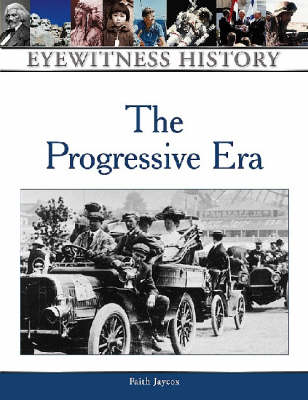Eyewitness History
2 total works
During the three decades between 1890 and 1920, the United States entered the modern era and considered how to meet its new realities - its diverse urban industrial society and its enlarged world power. On many measures, events that occurred in the Progressive Era mark a watershed in American historical development. American cities and businesses grew; the suffrage movement began; new cultural ideas started spreading; and many varieties of reform took place on the local, state, and national levels. In a highly engaging format, The Progressive Era covers the major events and activities of this active and exciting time period. Spanning the years from 1890 to 1920, the book pairs detailed narrative text with eyewitness accounts to give readers a clear picture of events as they occurred. Chronologically arranged, this reference provides complete coverage of this era - from the end of American Indian warfare to changes in agriculture, from entrepreneurs and workers in industrial America to the new immigration and ethnic and religious diversity, from the Spanish-American War to U.S. participation in World War I, from Social Darwinism to the Social Gospel. Each chapter includes a narrative introduction providing an overview of the history, and chronicles of events give specific listings. Document excerpts and capsule biographies of key figures bring the era to life, and nearly 15 tables and maps and more than 100 photographs add to the wealth of information available in this compelling addition to the Eyewitness History series.
Spanning more than 200 years - from the struggles of the earliest days of colonization in the sixteenth century to the eve of the American Revolution - the Colonial era is the longest recognized period in American history. The Colonial Era tells the compelling story of early America and its unprecedented accomplishments. Detailed narrative text - enhanced with chronologies, excerpts from primary source documents, and biographies of those who lived through the period - examines the quest for colonial dominance among the European powers and their resistance to the claims of the Native Americans who inhabited the continent. The book also looks at the differences that existed among the European colonies and within the settlements themselves. Political, social, and cultural developments are highlighted throughout, as are the experiences of Africans who were involuntarily brought to the colonies to serve as slaves. What emerges is a fascinating narrative of the growing conflict between one's history and homeland and the present and future in an unfamiliar territory.

